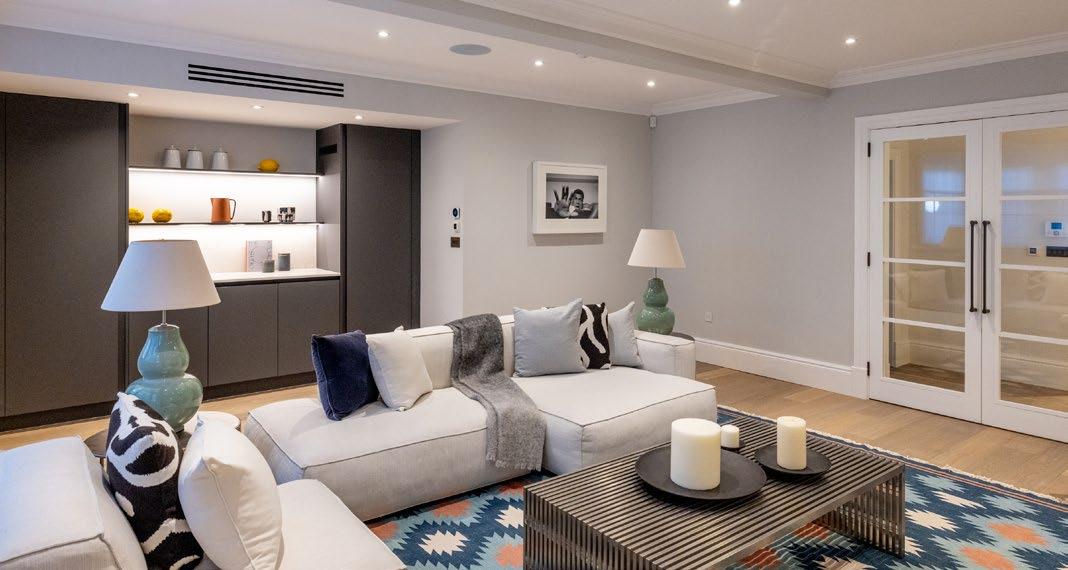
2 minute read
Residential
The gross value of our residential portfolio represents 29.5% (30.5% in 2021) of the total. Income from residential represents 21.9% (22.1% in 2021) of the total. Residential remains our second largest sector (after retail) and is important as it diversifies performance, drives our customer service understanding and reflects our strong stake in a thriving local community.
The high percentage change in value relative to the actual movement in gross value during the year is primarily due to a programme of planned disposals, representing £50.7m by book value.
The lower relative income yield produced by residential compared to commercial, reflects the combination of reversionary long leases which produce little income (but provide a return when the long leaseholders choose to enfranchise) and the private rented sector portfolio which generates a rental yield that is lower than commercial property.
The proceeds from enfranchisement sales during 2022 were £34.5m compared to £26.3m in 2021, remaining significantly lower than the ten-year average prior to 2019 of £74m. These sales represent the disposal of interests in 48 units (2021 – 29 units). Proceeds from 16 further discretionary sales totalled £30.6m (2021 –£55.9m). These disposals generated an overall profit of £14.4m.
£1.3m annual subsidy of keyworker and community housing, with rental freezes in 2022 to ease cost-of-living pressures

A review of residential leasehold reform legislation relating to long leasehold property was announced in 2021. The simplification of this arcane area of law is generally welcomed however, amongst the extensive proposals are two areas that we believe will have unintended adverse consequences and a direct impact upon the Cadogan business:


• An intention to “abolish” the marriage value element of compensation to freeholders. This would result in a completely inequitable one-off transfer of value (often a significant element) from freeholders to leaseholders. Prior to these proposals, leaseholders would have had no reasonable expectation of such a windfall. The impact for Cadogan would be to reduce future enfranchisement proceeds and inevitably reduce our ability to invest in the Chelsea estate over the long term. Although the financial impact over time will be substantial, this future potential revenue is largely discounted in our valuations as the timing is unknown and the proposed reforms have introduced greater uncertainty, and therefore only a small element is included within the balance sheet.
• The second element of concern is the proposal to lower the percentage of residential space required for collective enfranchisement claims (the compulsory purchase of a freehold) from 75% to 50%. Under this proposal more owners of commercial property assets will be bought out by the residential upper parts. The reduction in the ability to manage the properties will effectively deter investment in mixed use regeneration schemes which generate housing supply in city locations. It will also undermine high streets across the country by limiting the ability to effectively curate ground floor commercial uses and discourage long term investment.
There have been six housing ministers over the past 12 months - in this time these reforms have not progressed far. We are continuing to work with civil servants and the new housing minister to assist Government in understanding the potential impact of the proposals and our hope remains that these elements will be removed from the reforms.
Our private rented sector portfolio comprises nearly 700 houses and flats. A strong rental market led to properties letting as soon as they became available, often at higher rents. Our ability to take advantage of the very healthy market was strengthened by ensuring our short let residential homes are delivered to the specification and quality demanded by the market and supported by a very high level of customer service provided to our occupiers.



